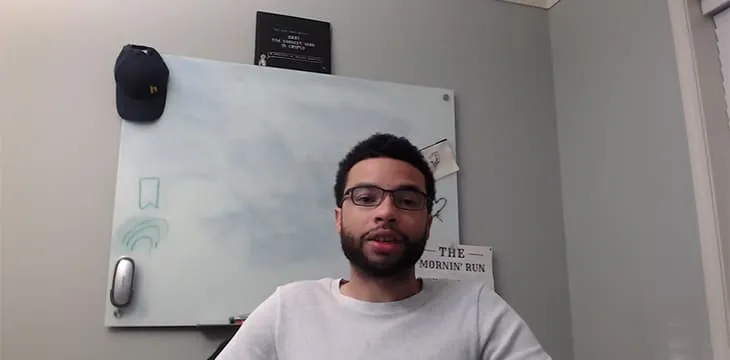|
Getting your Trinity Audio player ready...
|
BSV Expert and Developer Joshua Henslee released a new video discussing the launch of Accord Money on BSV. Watch the video via the link or read a summary of Henslee’s thoughts below.
What is Accord Money?
Henslee explains that Accord Money is a stablecoin yield farming project on BSV. It allows users to borrow a stablecoin (Accord Dollar) against BSV at a current interest rate of 15%.
To use Accord Money, users deposit their BSV tokens into a smart contract. In return, they get Accord Dollars, a market-made stablecoin token. This means that the more BSV tokens there are in contracts, the more Accord Dollars will be minted.
Henslee has repeatedly said that it’s crucial for BSV to have a stablecoin. He says he’s not sure if this is the one because it comes from an app rather than a bank, but he notes that it already has significant liquidity.
The current collateral to debt ratio on Accord Money is 120%. If a user deposits 10 BSV tokens, the contract would release the equivalent of 8 coins in Accord Dollars. Right now, that would be around $640, which at 15% annual interest, meaning the user would have to pay back roughly $740 to get her BSV back. Accord Money also incentivizes liquidity by paying BSVers to stake their BSV in the liquidity pools. The various pairs can be seen on TokenSwap.
On the impotence of a BSV stablecoin
Henslee notes how a stablecoin such as Accord Dollar will allow users who believe in BSV’s future to release dollars without giving up their tokens. He also thinks it will attract new liquidity into the BSV ecosystem, solving one of the biggest problems it currently faces.
As for turning Accord Dollars into U.S. dollars, Henslee explains how Volt Wallet has a Tether bridge on Tron. This allows Accord Dollar holders to switch their ACD for tokenized Tether, which they can then send to exchanges and sell. Henslee admits this is an imperfect solution, but it’s a solution nonetheless. It will do so until a bank or financial institution releases a stablecoin on BSV due to its extremely low fees.
Stablecoins and interest rates—their impact on digital currencies
Henslee then explains how he has written an article on interest rates and their impact on the digital currency markets. He believes that upcoming interest rate rises are going to be harmful to prices. They’ll hit equities, and they will inevitably have a negative impact on digital currencies.
Henslee sees parallels with the 1970s when oil prices were also extremely high, and the Federal Reserve had to aggressively raise rates to combat inflation. Back then, rates hit double digits, and while they might not go that high this time, even a few percentage points on risk-free assets like U.S. bonds will entice investors out of risk assets like digital currencies and into traditional safe-havens.
According to Henslee, this will create demand for products like Accord Money, as holders will want to raise cash without actually selling their coins. In fact, one Crypto Punks NFT holder recently got millions of dollars in loans against over 100 punks. However, this comes with a warning: as rates rise generally, the rates on these collateralized loans could rise rapidly, too.
Henslee concludes by saying that USDC has the right idea, but it’s on the wrong blockchain. “USDC is a great idea, but it doesn’t work on Ethereum,” he says in closing.
Watch: CoinGeek New York panel, Tokenized Assets, Stablecoins and Custody with BSV

 07-12-2025
07-12-2025 





